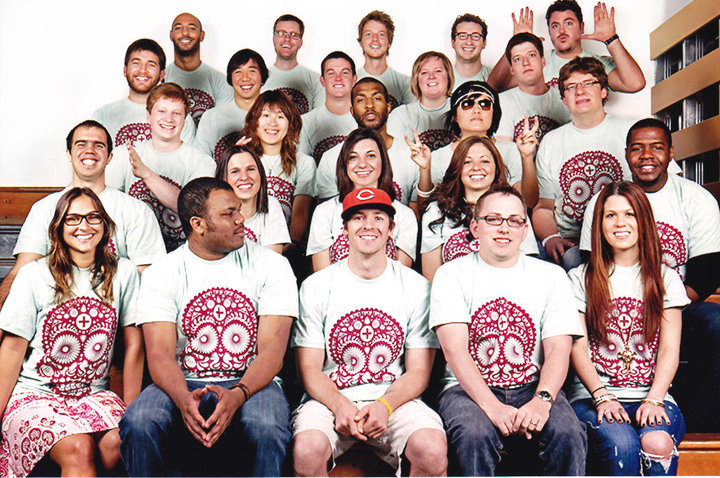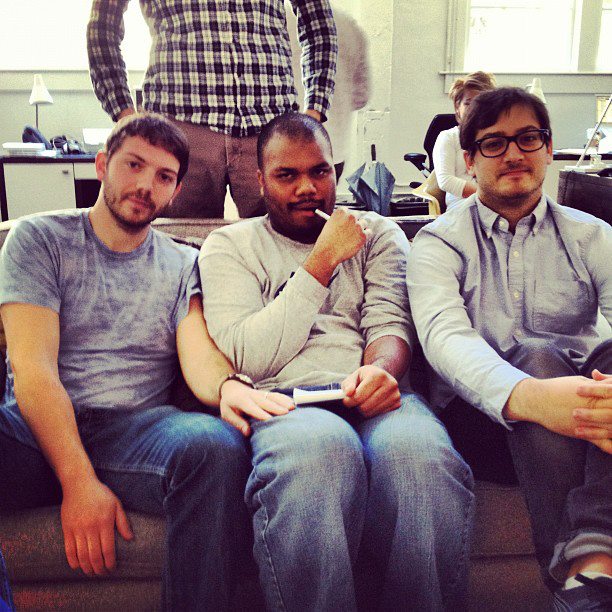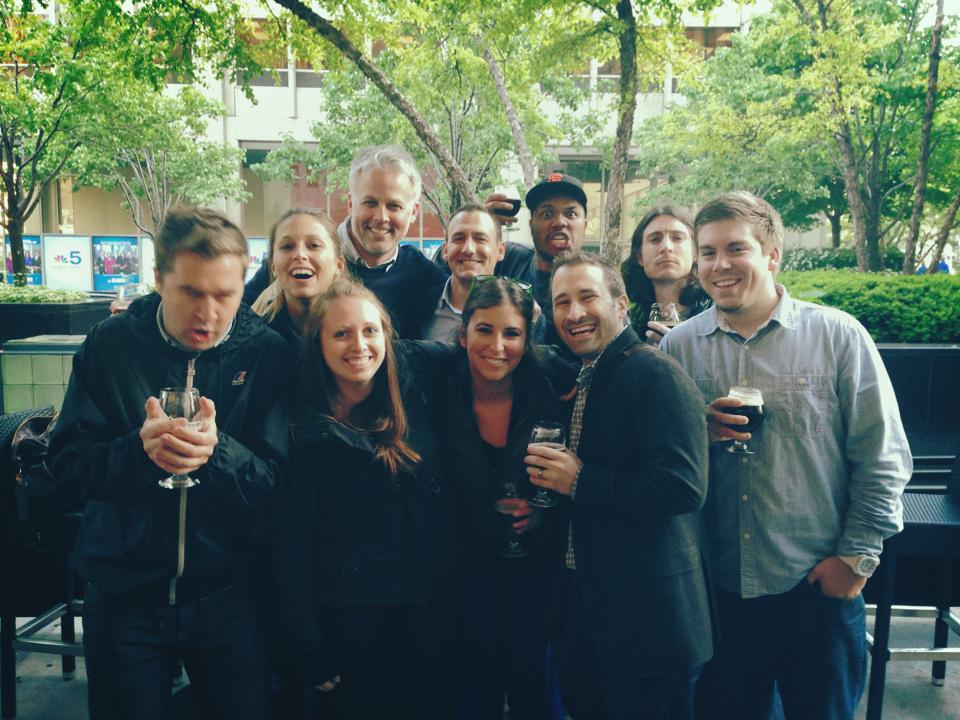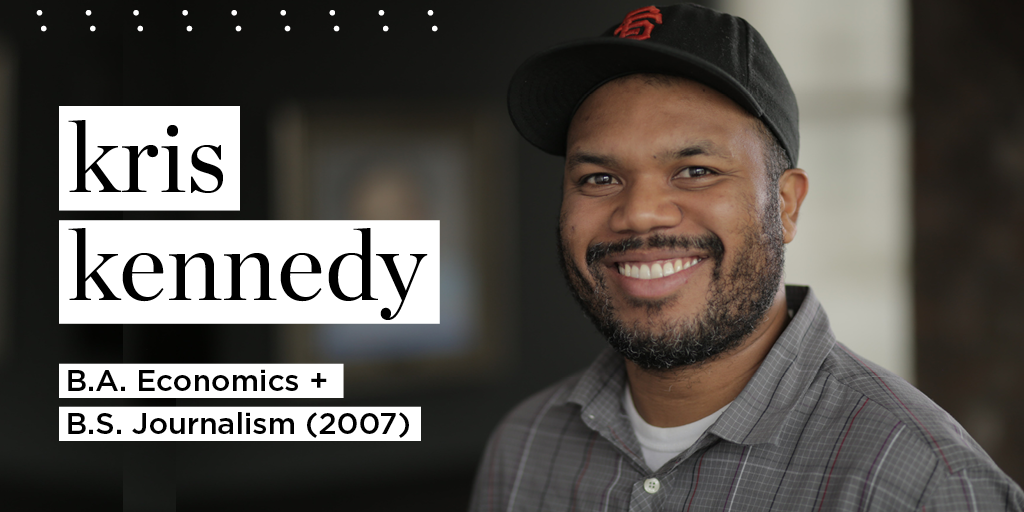
Why Kris is a Hawk to Watch:
Kris Kennedy has made a name for himself within creative circles with big ideas, ambitious media stunts and an unapologetic weirdness that’s become his signature style — The moon as a Corona beer lime wedge. Mini donkeys and Heinz ketchup bottles. A chicken nugget TV spot inspired by ’90s anti-drug PSAs.
These juxtapositions might seem like odd setups for television commercials. But the usual way of doing things has never much interested Kris. Over the years, his playbook of taking calculated risks has paid off handsomely in the form of sales, press and brand buzz. And his off-kilter, out-of-left-field approach to advertising has earned him industry accolades and coveted Super Bowl airtime.
At the end of the day, though, he thinks of himself first and foremost as a problem solver, driven to uncover new and interesting solutions. And whether he’s working on ads, brand strategy or movie scripts gone wrong, for Kris, every successful creative endeavor starts the same way — by asking the right questions.
Before producing work for iconic brands like eBay, Pizza Hut and Anheuser-Busch, Kris honed his creative chops in KU’s College of Liberal Arts & Sciences and schools of Journalism and Business. Recognizing his distinct vision and raw talent, faculty mentors encouraged him to apply to graduate school at Virginia Commonwealth University’s prestigious Brandcenter to polish his skills. He listened, and the future looked bright.
Then the Great Recession of ’08 hit. With his plans scrapped after graduating into a dismal job market at the height of the financial crisis — “there were no jobs,” he said. “And I’m not being hyperbolic. I mean there were zero” — Kris found himself in a sink-or-swim situation. Pushing ahead meant an around-the-clock work grind and saying “yes” to nearly every opportunity. But after a two-year cycle of unpaid internships, couch surfing and sleeping under office desks, Kris caught his big break with a full-time industry gig.
Now with more than a decade of experience under his belt at esteemed organizations like The Onion, Heat, VMLY&R and, most recently, Reddit, Kris and his teams are navigating a whole new set of challenges during the pandemic. Zoom fatigue, long days and the blurred dividing line between work and personal life have been a tricky balancing act for professionals in nearly every sector. For ad agencies and their clients, Kris says, it’s been like learning to creatively “walk” again.
We caught up with Kris, who opened up about adjusting his creative process (and changing jobs) in 2020, why asking “what you want to be when you grow up” is the wrong question and how he learned to embrace a career path that’s uniquely his own.
Tell us in a sentence or two what you do for a living:
I’m a creative problem solver for brands, institutions, nonprofits and even film/story scripts that have gone awry.
I help solve these problems by finding ways to connect these organizations or projects with the everyday person in a more empathetic, interesting, fun and authentic way — from creating better advertising or new products, to coming up with better ways organizations can operate or help the everyday person, to even fixing deficiencies in film and story scripts, and more.
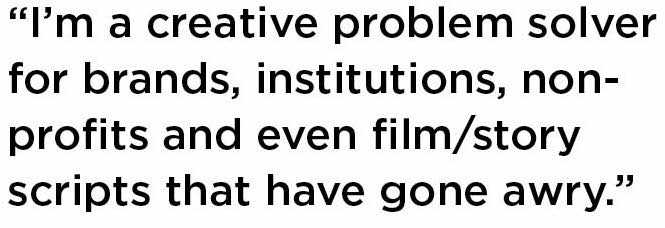
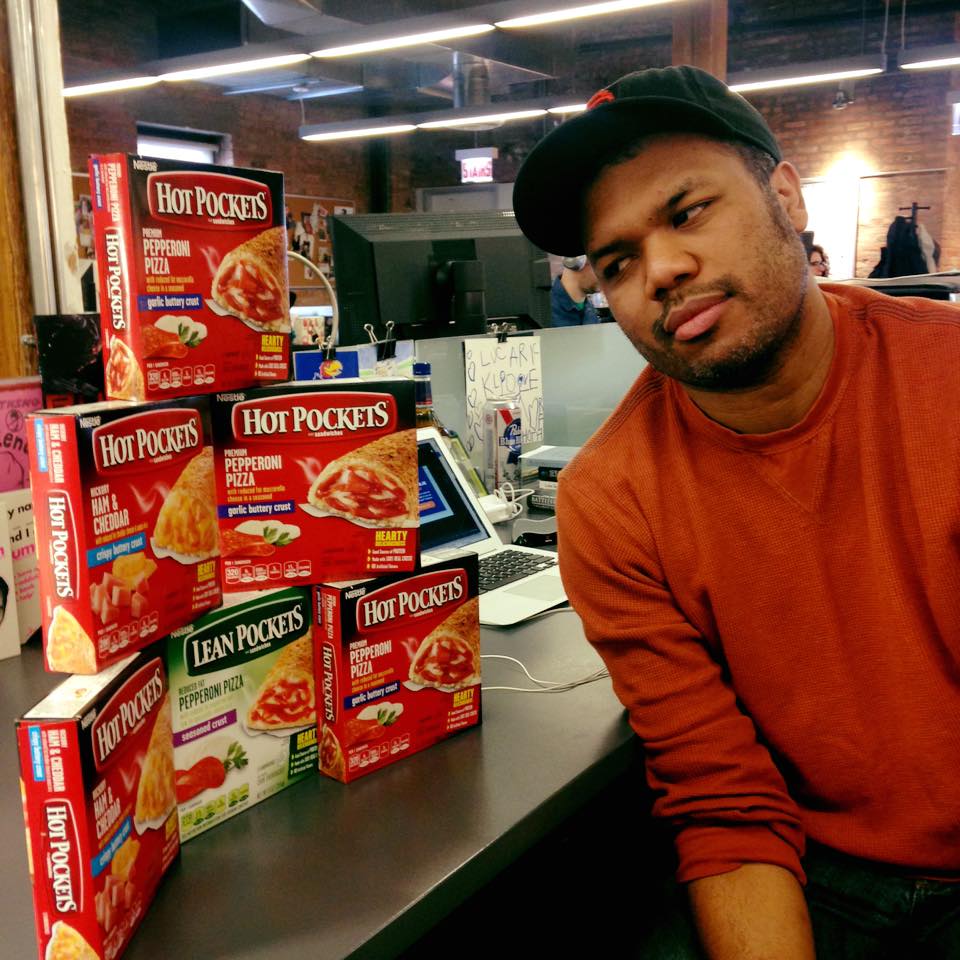
How did you end up doing what you do?
My professors in the CLAS, the J-School and the B-School all saw something in me that I didn’t realize was there — I had a talent to be both creative and analytical.
But that took a lot of bouncing around of majors, long talks during office hours, trying out a lot of stuff through different campus clubs, and trying out a lot of different part-time jobs while at KU (everything from a professional hip-hop dancer/choreographer, a bank teller, a record label owner, and more.)
Finally, one of my professors mentioned that going to grad school (the VCU Brandcenter) to learn about advertising, creative problem solving and storytelling might be a good fit for my weird, almost “all over the place” talents. So I went to grad school to fine tune and focus those talents.
So my KU professors were so right.
What’s it been like to work in a creative role (and change jobs) during the pandemic? What adjustments have you and your team had to make to create content that resonates with others?
Professional creative problem solving is a team sport. Almost like a TV writer’s room, our creative process involves a group batting around a bunch of movie references, jokes, half-thoughts and crappy ideas for hours on end. At some point, all that nonsense gets polished into good ideas. But getting there takes a lot of trust and familiarity amongst the team.
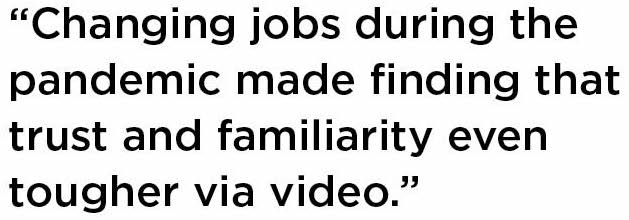
But during the pandemic, our “writer’s room” process turned into Zoom calls. The rhythm of getting to ideas had changed overnight. And all of us, our clients included, had to relearn how to creatively “walk” again. No more non-verbal communication or inferring or reading the subtlety of a message, musing or half-thought — which is super important in the ideation process. Instead, we had to find ways to over communicate in order to keep that team sport-style energy alive. Which meant longer workdays, lots of Zoom fatigue, but also a lot of completely different creative ideas and solutions we probably wouldn’t have tried had we not been in the pandemic.
Changing jobs during the pandemic made finding that trust and familiarity even tougher via video. What made it possible is everybody cutting each other a lot of slack, having a sense of humor/not taking things so seriously, and understanding that we would all have to create a new creative process.
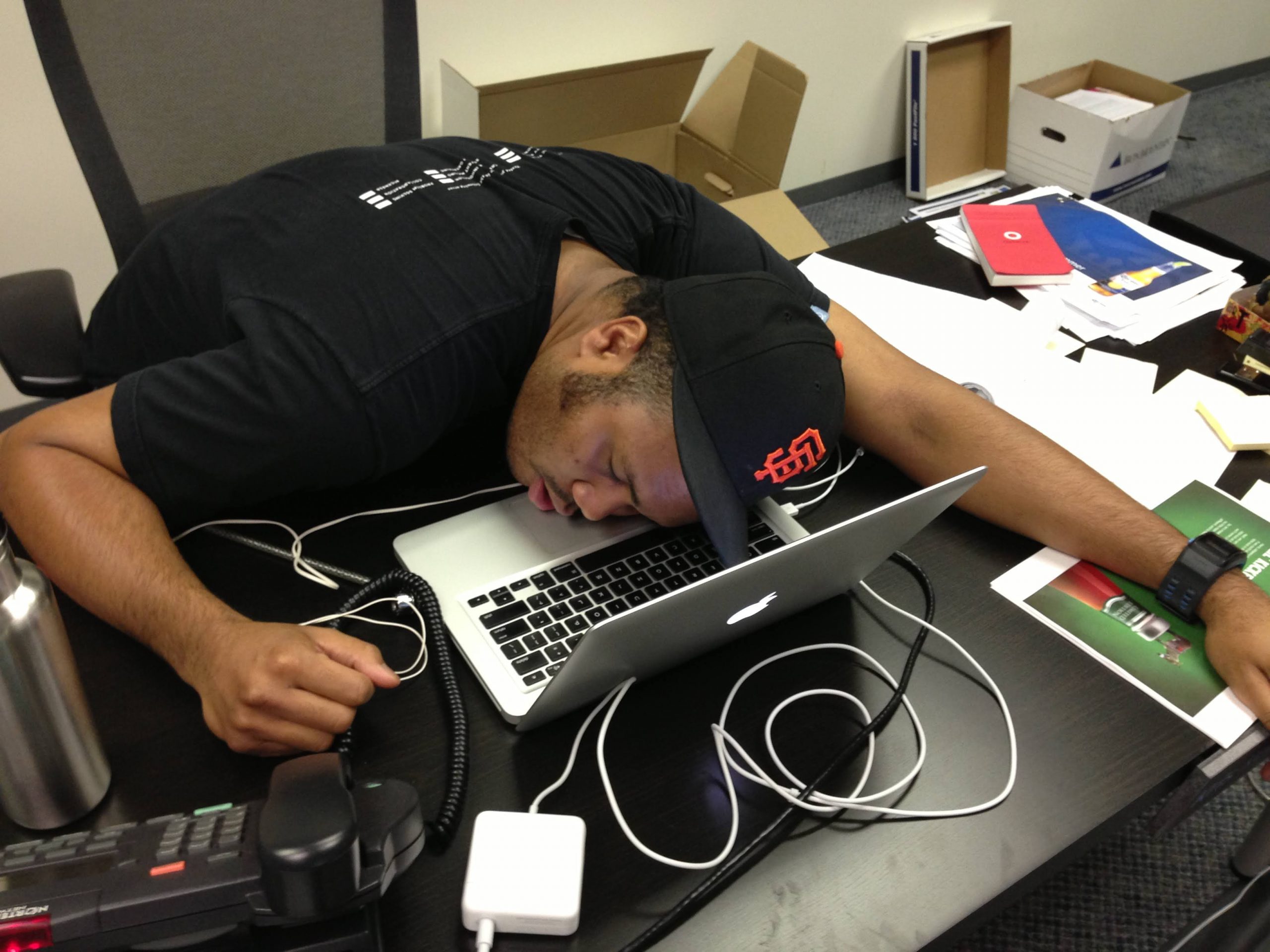
What’s your favorite creative project you’ve worked on?
A stunt my team did for Corona that we named Luna Corona. (Here’s a 2 minute explainer video about the project.)
The project was a giant gamble as we tried to turn the moon into a giant, iconic slice of lime in a Corona Bottle. It was a huge challenge that involved my partner and I doing a ton of math, working with scientific modeling programs and trying to convince everyone involved to have faith — even though there was absolutely no certainty that our gamble would work.
It was a huge challenge that involved learning a ton of new skills. But for creative folks, huge challenges are what makes the profession so enjoyable. Because huge challenges and tough times are signs that you are creating something that is actually new. (Creating something new is one of the hardest things a person can do.)
Luckily, our gamble paid off. The project worked. (Shout out to the moon for being a good sport and really helping us out, too.)
What’s your lowest career moment and how did you pick yourself up and move on?
Graduating from grad school during the last financial crash. The grad school I went to produces some of the most sought-after talent in the world for what I do. But when I graduated, there were no jobs. And I’m not being hyperbolic. I mean there were zero.



During that time, I’d take anything. One of those “anythings” was my first of many unpaid freelance projects for an ad agency in New York City. The work was fine, but since they didn’t have money to pay me, I didn’t have money to sleep anywhere. And after wearing out my welcome on friends’ couches around town, I was stuck having to either sleep in subway, at a Dunkin’ Donuts in Union Square, or “sneak” staying at the office late and just sleeping under my desk.
It felt like all that hard work, all that school and all that sacrifice was all for not.
It took about 2 years of emailing, interviewing, working free internships, working free unpaid gigs and working (thankfully paid) freelance projects I found on Twitter until I landed my first full-time paid job in the industry.
What kept me going was prayer and just really not wanting all that hard work to not be in vain. I wanted to do everything I could to work so hard that I’d never be in that situation ever again. (I worked so hard it honestly was unhealthy. But then again so was sleeping on subway trains.)
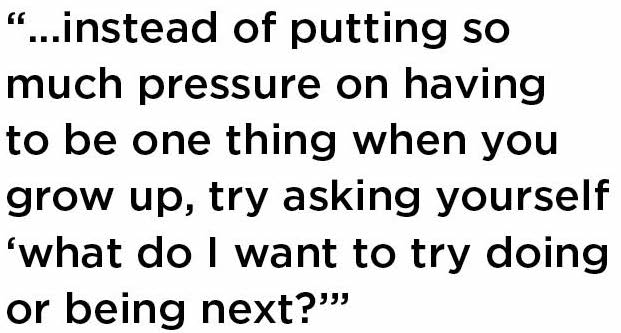
What do you know now that you wish you could tell your 18-year-old self?
The question, “what do you want to be when you grow up” is a myth. Because that implies that your goals, skills and passions won’t ever change, grow or evolve. Instead, growing, changing, learning and evolving is kind of the point of being a human.
So instead of putting so much pressure on having to be one thing when you grow up, try asking yourself “what do I want to try doing or being next?” Because your career shouldn’t be like anybody else’s. Your career should be like your fingerprint; unique to you.
What’s your best career pro-tip or bit of practical advice for KU students?
Try to care about people more than whatever business/industry you’re in. The old adage of “it’s not what you know, it’s who you know,” is true. Your career will change, the company logos you work for will change, what you’re interested in will change. But if you aim to treat people right, they’ll be a huge help to you when you need them or when you least expect it.
How did your KU degree prepare you for your current job?
My studies at KU helped me in three ways. First, I learned how to ask tougher questions. (Tougher questions lead to more interesting problems to solve.) Second, I learned how to develop processes/practices/systems to explain things to others in better ways. Lastly, it gave me confidence — both that I could hold my own and that I had a huge network of Jayhawks who had my back if I ever “failed.”

What do you do after you’ve clocked out?
I play Paw Patrol action figures with my five-year-old son, I write comedy things and I make drinking Shrub syrups.
What is a fun fact about you that surprises people?
I love playing disc golf. (But I’m not good at it.)
Meet more of our Hawks to Watch. For more information, visit the Department of Economics, the William Allen White School of Journalism and Mass Communications and the School of Business at the University of Kansas.
Hawks to Watch are disrupters. They’re poised for greatness, inspiring their colleagues and excelling in their professions. Basically, they’re killing it. Having recently graduated, they are just starting to leave their mark and we can’t wait to see how their story unfolds. These Jayhawks span all industries including business, non-profits, tech, healthcare, media, law and the arts.
